Celebrating 10 Years of Social Media Advocacy: Mike Rizzi

Denny Patterson is a St. Louis-based entertainment and lifestyle journalist…
When Canadian social media personality Mike Rizzi posted his first YouTube video in 2012, never in a million years did he think an online presence would lead him to where he is today.
The content creator has made a significant impact over the last decade, and he could not be prouder to celebrate his 10-year social media anniversary. With more than 350,000 followers, Rizzi uses his platforms to share his life and pull back the curtains on issues facing the LGBTQ community. A true advocate for sex education, some of his best videos include a 15-minute documentary surrounding amateur creators who flipped the script with gay porn on OnlyFans, gay couples reacting to anti-gay marriage ads, and straight men reacting to Andrew Christian underwear.
Now, in a new era of pop culture and trends, Rizzi produces short-form video content that leverages hype in fashion, food, and lifestyle, and he even launched his own candle store, where he sells a custom body candle.
OFM caught up with Rizzi to talk more about his social media career, how LGBTQ exposure has changed over the years, and what he hopes to accomplish next.
How does it feel to know that you’re celebrating your 10-year social media anniversary?
It feels really cool to celebrate 10 years on social media. I started when I was 17 years old, so it’s crazy to think that something that started off as a pure hobby blossomed into a full career. It’s also weird to think that I’m still on social media because I remember thinking I would not still be on YouTube after the age of 25. Obviously, social media was not as big as it was back then. It was kind of a small, niche community, but it feels awesome how big digital platforms have gotten, and I’ve been able to work in entertainment in a way that I never thought I could. So, I feel honored. It still feels like a dream.
Let’s take a stroll down memory lane. You initially started posting videos on YouTube to connect and make friends with other LGBTQ people?
Yes. I grew up in Ontario, Canadian suburbia, and there wasn’t any way to meet other gay people all throughout high school. I had one girlfriend who was bisexual, but I didn’t have any gay male friends or people who had boy crushes like I did. I wanted to talk about the things like teenagers were talking about. I started watching 1 Girl 5 Gays on MTV late one night, and listening to other gay guys talk about their gay-to-day experiences was very impactful on me.
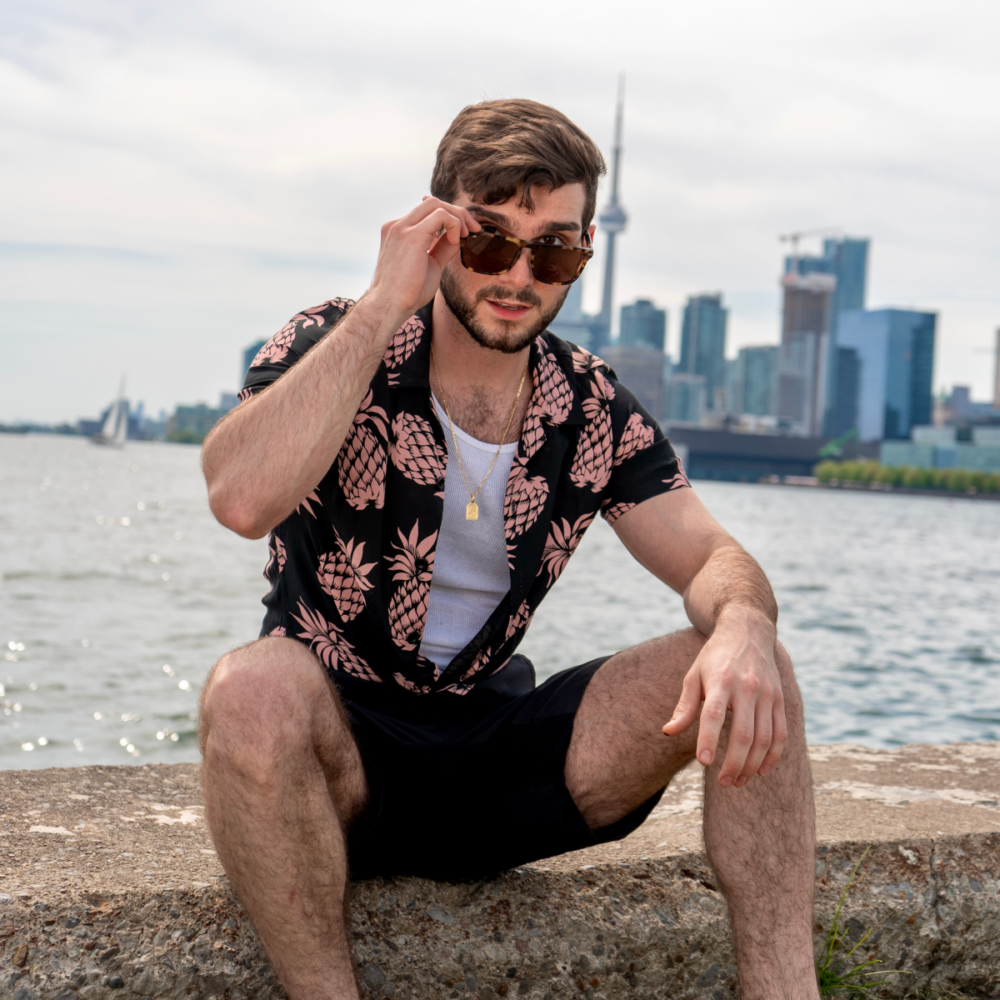
Simultaneously, I would watch coming out videos on YouTube, and there was this huge archive of people sharing their coming out stories. It was so helpful for me to learn how people told their friends and family members, and it made me feel OK that I hadn’t told people at that time. A few years went by and coming out videos turned into actual channels. People were making weekly content, which turned into gay men coming together and making collaborative channels.
That was something I valued, and I wanted to jump on this bandwagon and make a YouTube channel just to make friends.
After you posted your first couple videos, what kind of responses were you receiving?
I received very positive responses on social media in the early days of YouTube. There weren’t any algorithms, so it was basically like-minded people finding other like-minded people. If someone found my content, they were most likely a gay person. It was a lot of positivity. Obviously, you would get some hate comments, which was weird at the time because hate comments were such a new thing to experience, but overall, my community has been very positive and kind.
How come you thought you wouldn’t be doing this 10 years later?
I was in the headspace that YouTube was not a career thing. It was just a hobby. To still be on YouTube after 25, it would seem like I wasn’t doing much with my life. That is obviously not the case, and what really changed things for me was when I joined the Much Creator Roster in 2017, which is under Bell Media. Bell Media is the biggest media company in Canada, and they essentially saw the value in online creators and the audiences they were garnering.
They created a roster program where they would represent different YouTube talent across Canada and give them production tools and amplify them using their own broadcast network. Suddenly, I was having commercials on TV and attending events I didn’t have access to beforehand. That really changed my perspective on YouTube and social media in general.
What kind of impact do you hope your videos have made on others?
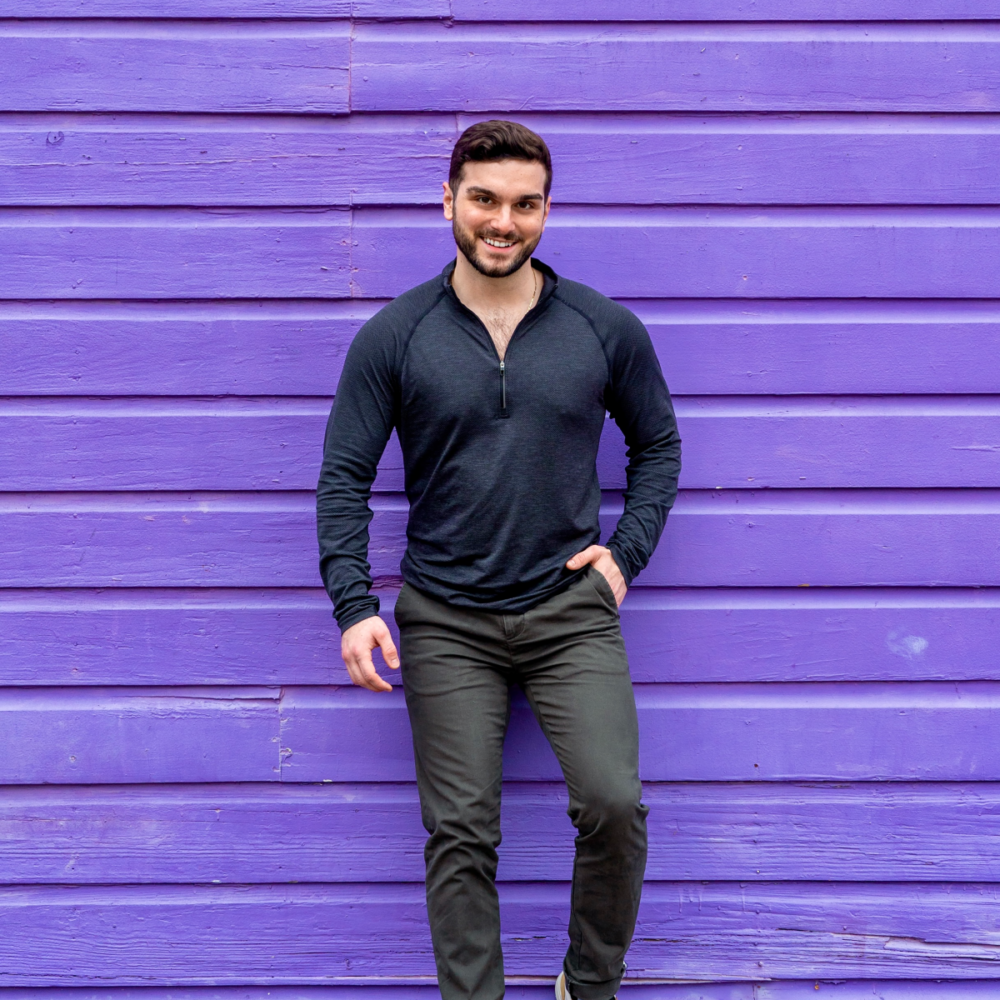
I’ve gotten a lot of personal DMs, comments, letters, and anecdotes from people. I’ve always tried to stay humble because there are so many online creators that make an impact and it’s not just about one person, but I’ve gathered that I’ve made a big impact on a lot of people’s lives. It’s like when I was a teenager watching those coming out videos, collaborative channels, or 1 Girl 5 Gays and seeing other like-minded people. People that I could relate to. Seeing them live their lives made being gay less scary. That kind of visibility is so important, and I’m happy to have contributed to that.
You are a true advocator for sex education in the LGBTQ community, and you have consistently posted content on the matter from the start. Why is this so important to you?
When I made my YouTube channel, I was fresh off health and sex ed, but I feel like there were so many topics that I still didn’t understand. I started a short series when I was 18 years old called Sex Ed with Mikey, and it would be me sitting down with another YouTuber, and we would talk about sex in an open way. That kind of blossomed my interest in talking about sex online. Not in a descriptive way, but we can talk about it because it’s something we all like and want to do.
What started off as a short little web series talking about sex turned into something more. By 2019, I made a mini documentary about amateur creators starting OnlyFans, and I traveled around Canada to talk to these creators about the kind of content they make, how they produce their content, and how they make a living out of it. It was like pulling the veil away from those mysterious aspects of sex education that people might not be able to Google and get a quick answer about.
I love that you also talk about mental wellness and body positivity. These are topics that were barely discussed 10 years ago. What more needs to be done to keep the conversations going?
I think the body positivity movement in 2020 was incredible and really showed a lot of people coming together and talking about their own body experiences. Everyone was looking around going, “You’re not OK with the comments we’re getting either?” We’re all moving forward in a new fashion, and there were pockets of that over the last 10 years. I can only ever talk about my personal experience of being Italian and having tons of body hair, which I’m learning is cool as an adult. I was bullied a lot for my body hair when I was a teenager, but I have no confidence issues about it now.
I didn’t think I was very worthy back then, and I wasn’t seeing a lot of people in the entertainment space that looked like me. Everyone seemed to be waxed, shaved, and smooth, and it made me feel like I wasn’t someone who belonged. Between 2014-2017, I made a series of videos about being bullied for body hair and shared my own experience, but thinking back now, it wasn’t that big of a deal. At the time, I was figuring out who I was as an adult and using YouTube as an outlet.
Why do you think mental wellness and body positivity is still very stigmatized in the LGBTQ community?
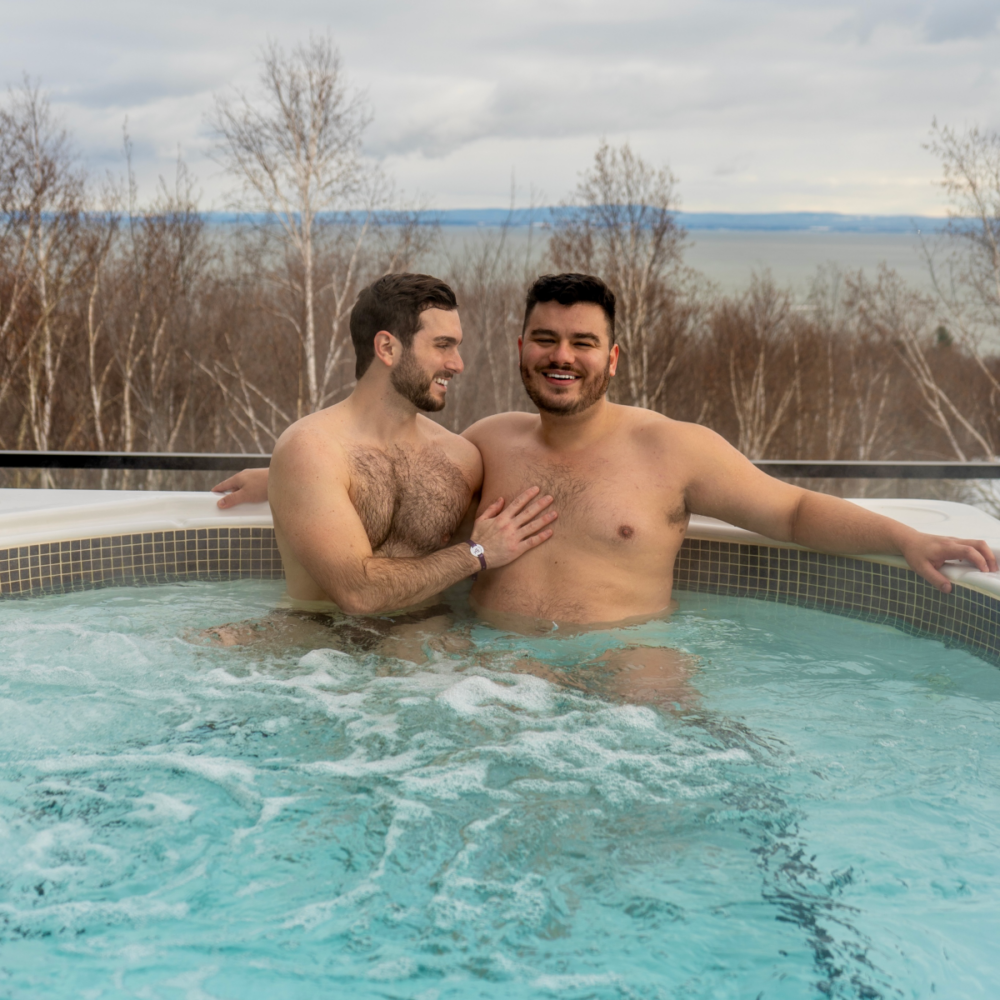
I think within the gay community specifically, there is such a big focus on sex and bodies, and because we’re in these tight groups of queer friends where we’re all like-minded and focusing on these same topics, I think we kind of end up being like a sounding board for each other of all our insecurities. The gay community is sometimes too focused on sex and bodies, and I feel that body issues just end up being exacerbated.
A lot of spaces that are created for queer people are very body focused. Whether you’re talking about clubs, bars, raves, Pride parades, or summertime where everyone’s half naked, I feel like it can be very difficult for someone who has body issues with their own sense of self to really navigate that because it feels like you’re not worthy unless you look a certain way.
I feel like the new generation, Gen Z, is coming into the internet and taking those social norms down. It’s so much less about how you look and so much more about how you treat people. I have a lot of faith for the future generations to really set that groundwork. It doesn’t matter how you look. It matters on what’s inside, and I think that over time, the gay community will not face as many of those issues.
Looking back, which video was your absolute favorite to make?
My absolute favorite video to make was Living with the Stigma of HIV, and it was my favorite for a few reasons. This was at a time when I was a Much Creator, so I had access to Bell Media’s production facility, and I was able to utilize their equipment, cameras, and studio space. Within a two-week span, I reached out to different HIV-positive and AIDS organizations to see if there were people willing to speak about their experience being HIV positive. I connected with six people who are HIV positive, five men and one woman, and I interviewed them about the stigma that they face on a daily basis, as opposed to the illness itself.
I created a video that was very raw and real about the daily experiences that these people go through, and I think the main goal was to humanize the face of HIV. I’m very proud of myself because at 21 years old, to be able to develop an idea and have the video produced, finished, and ready for upload within two weeks, that showed me that I can literally make anything I want. It’s just a matter of will. Over the last few years, I’ve received messages from different educators letting me know that they’re playing this video in high school classrooms and university lectures. It’s a video that’s made a positive impact on people, and it was a bit of a passion project for me.
How has LGBTQ exposure changed in the last decade on social media, and what does it mean to be a queer creator in the 21st century?
Ten years ago, being visibly gay, lesbian, bisexual, or trans online was enough because there wasn’t that much visibility. Over time, there have been so many more queer people that have come online and shared their experiences, and sometimes, it feels like there aren’t any more queer stories for me to tell because I feel like I’ve contributed to all the stories on the internet that matter to people. The only thing I can really keep providing is visibility.
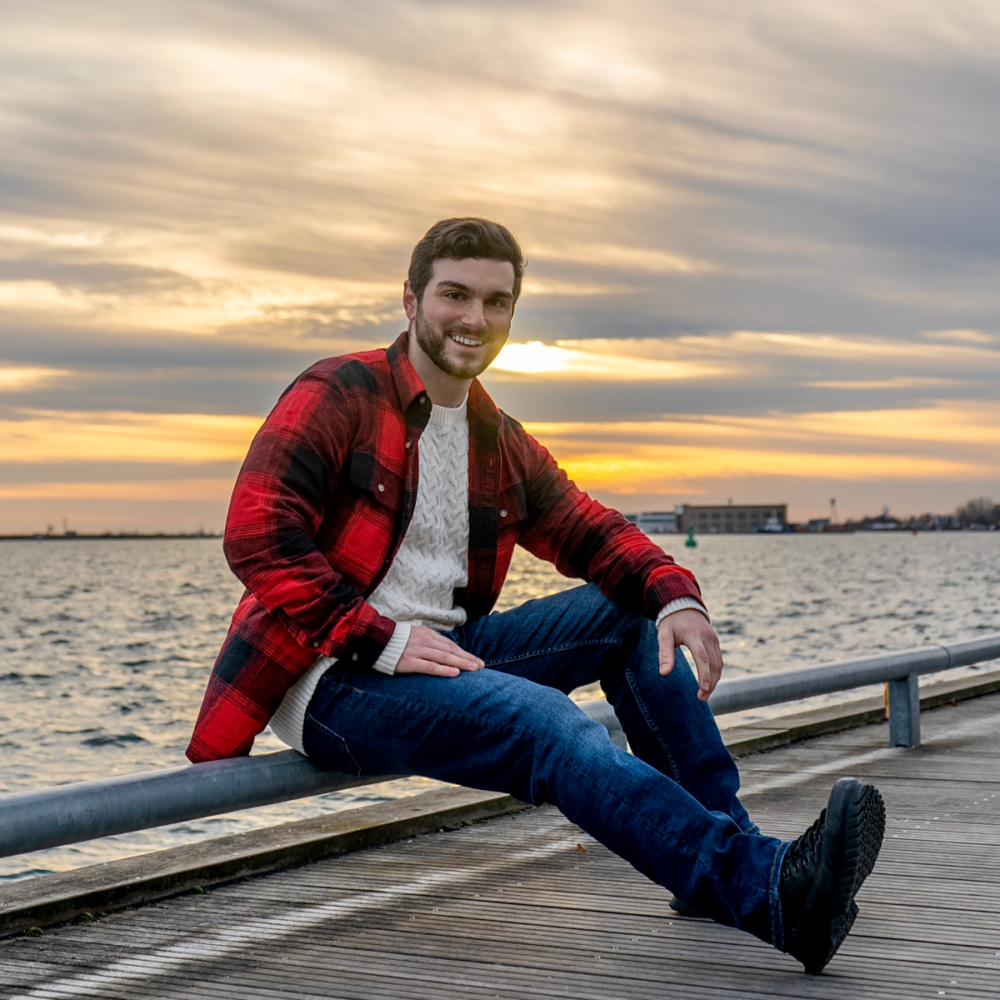
Nowadays, I feel that intersectionality is the most important aspect because we see so many white gay men on the internet, television, and in our movies. Do we necessarily need to see another James Dean-looking gay man in a movie? It’s great for visibility, but maybe not impactful for the next generation that already grew up seeing those people. Black creators, Asian creators, and others who are willing to talk about their sexual experiences, I think that’s very impactful.
Seeing LGBTQ creators of all shapes and sizes gaining traction, which is happening specifically on TikTok now, it’s great for the next generation to see different kinds of people talking about topics that matter to them. That’s how I see the next phase of the progressive queer movement getting shaped. Real people sharing real stories.
What is the key to using social media properly?
The key for using social media properly when I started out, and for most of my career, was production quality and ensuring that what I was producing could stand up against what you’re watching on television or in the movies. Over the pandemic, it was interesting because everyone was suddenly at home and had a lot more time on their hands. I sort of have this saying: Everyone is a creator.
Now, everyone can pick up their phone and post on TikTok. My sister, she’s never participated in social media, she is now creating daily videos about her sexuality and interesting books on TikTok. The next phase of what it means to be a creator and what it means to create online content is to pick up your phone and share relatable content.
Any advice for those wanting to become a content creator?
Don’t think about yourself as a content creator because it puts pressure on you to think that you need to put out a certain amount of videos a week or a certain amount of quality in your content. There is a huge desire now to see people living their authentic lives online. Whether you’re someone who enjoys books, likes to talk about food while eating in your car, working out, talking about your meditation, or your university note-taking abilities, there is a niche community for every single kind of interest. Start following like-minded people and see what they’re doing, and just start creating. Post as much as possible because your videos will resonate with people at some point.
Last year, you launched your candle store, where you sell a custom body candle. Can you tell us more about this?
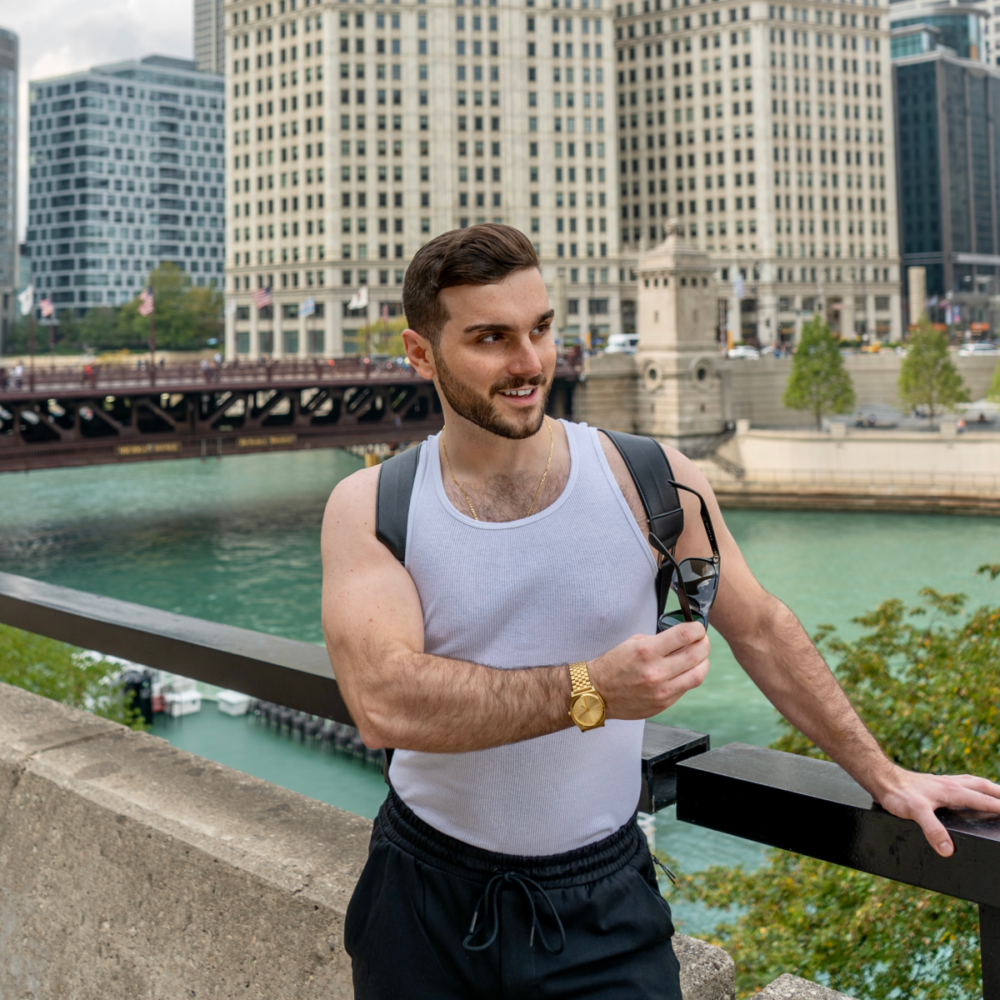
That was part of a larger brand project. I sometimes work with brands, and that’s a big way in how I’ve been able to make this hobby into a career that sustains me. I was working with GoDaddy to create a website using GoDaddy’s services, and it gave me an opportunity to create an interesting merch product. Personally, I enjoy female and male body candles, and I see people now with 3D printers left, right, and center. I’m so happy that over the course of 10 years, I’ve become confident with myself, so I decided to make a candle of my torso and see how it goes.
I 3D scanned and printed my torso, created silicone molds, and got a candle developer in the city to pour candles for me. It was just a small project to sell these candles to people who cared that much about me and my content. Support me by buying my torso. It was slightly a gag gift, a little bit artsy, but it was something fun to try.
What more do you hope to accomplish with your platform?
I feel like over the last 10 years, I’ve done a majority of what I wanted to accomplish as a creator. In the last year, my partner and I have started a company together where we want to offer production and professionalizing services to others who want to consider themselves creators and help them monetize and make their creator hobby into a career—take everything we’ve learned over the last 10 years and do it for other people. I’m excited about this next phase of my life. Like, how can I help others grow and create these platforms? Yes, there’s Instagram and TikTok, but in a few years, there’ll be a brand-new platform with a new way to share content, and I’m excited to help young people create content on those platforms and help them make a difference.
Stay up-to-date and connect with Rizzi by following him on Facebook and YouTube @michaelrizzi, Twitter and Instagram @mikerizzi, or visit his official website, mikerizzi.com.
Photos courtesy of Mike Rizzi
What's Your Reaction?
Denny Patterson is a St. Louis-based entertainment and lifestyle journalist who serves as OFM's Celebrity Correspondent. Outside of writing, some of his interests include traveling, binge watching TV shows and movies, reading (books and people!), and spending time with his husband and pets. Denny is also the Senior Lifestyle Writer for South Florida's OutClique Magazine and a contributing writer for Instinct Magazine. Connect with him on Instagram: @dennyp777.










